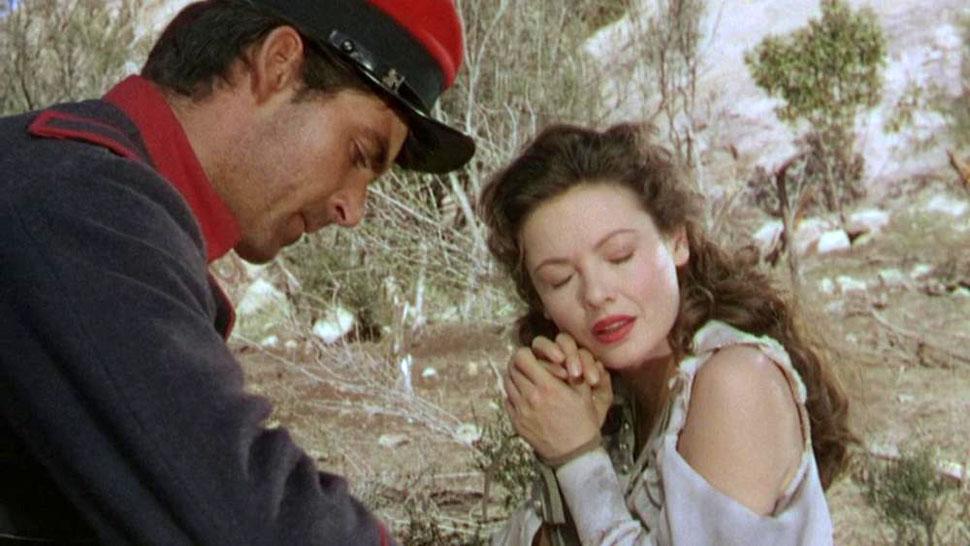| Director: | Jacques Tourneur |
|---|---|
| Production: | Twentieth Century Fox |
| Running Time: | 87’ |
| Language: | English |
| Country: | USA |
| Year: | 1952 |
| Main Cast: | Rory Calhoun, Gene Tierney, Richard Boone |
| Screenplay: | Philip Dunne |
| Cinematographer: | Harry Jackson |
| Editor: | Robert Fritch |
| Production Designer: | Mark Lee-Kirk, Lyle R. Wheeler |
| Costume Designer: | Charles Le Maire, Mario Vanarelli |
| Music: | Sol Kaplan |
| Visual Effects: | Roy Kellogg |
| Restoration: | Twentieth Century Fox, The Film Foundation |
Way of a Gaucho

Synopsis
A gaucho who is forced into the army rather than face jail for manslaughter, deserts the army and organizes a band of outlaws to hold back the progress of the railroad. The head of the police, who was also his commanding officer, vows to bring the gaucho back. The gaucho realizes that he cannot win and must let the railroad go forward and the policeman concedes and allows him to go free and marry the society girl he loves.
Critic’s note
The film opens with long shots of a pampa. Gauchos on horseback meet their leader, Miguel, returning from the city in a carriage, and escort him to a fiesta. These opening scenes have a buoyancy and splash that recall The Flame and the Arrow. Leading on with this mode only for purposes of dramatic contrast, the film quickly turns away from it. As in other Tourneur movies, we are in the narrative before we have enough information to evaluate the importance of what we see. Precisely because of this ignorance, we interpret the relationship between Martín and Miguel in a way that gives it its full mythical value. Since they address each other as “brother,” we see them as a pair of brothers in a fable, the elder of whom has inherited the father’s name and wealth while the younger stands—for the time being, loyally— in his shadow. We sense that Martín, though not the biological son of Miguel’s father, is a truer son to him than Miguel and that Martín’s actions carry on the ‘way of a gaucho’ whereas Miguel’s betray it. Already, the freedom that Martín will search for throughout the rest of the film exists in the world of the film only as a myth of the past.
Chris Fujiwara, The Cinema of Nightfall: Jacques Tourneur, Johns Hopkins University Press, 2001
Producers/Distributors
PRODUCTION 1: Twentieth Century Fox
10201 W. Pico Blvd.
90067 – Los Angeles, United States
Tel. 1-310-369-3171
stephany.kim@fox.com
PRODUCTION 2: The Film Foundation
7920 Sunset Blvd., 6th Floor
90046 – Los Angeles, United States
Tel.1-323-436-5060
kmerola@Film-foundation.org
http://www.film-foundation.org/
PRODUCTION WHEN THE FILM WAS MADE: Twentieth Century Fox
WORLD SALES: Jack Bell – Park Circus
15 Woodside Crescent
G3 7UL, Glasgow, United Kingdom
Tel. + 44 0)141 323 2175
info@parkcircus.com
http://www.parkcircus.com
ITALIAN DISTRIBUTION: Bell Jack – Park Circus
15 Woodside Crescent
G3 7UL, Glasgow, United Kingdom
Tel. + 44 0)141 323 2175
info@parkcircus.com
http://www.parkcircus.com


